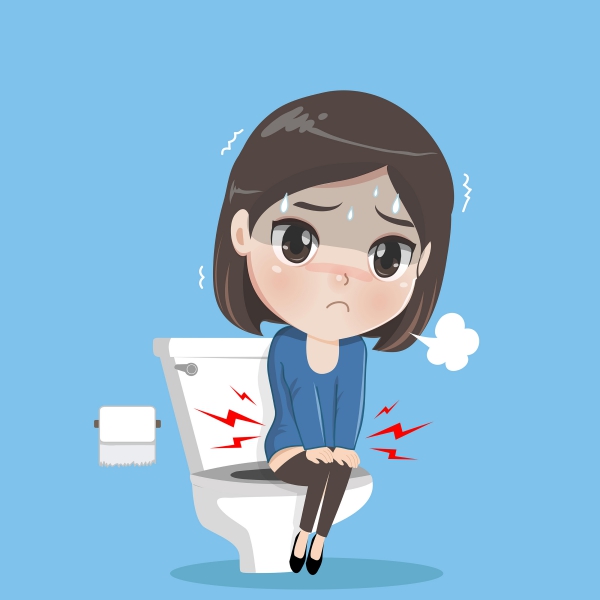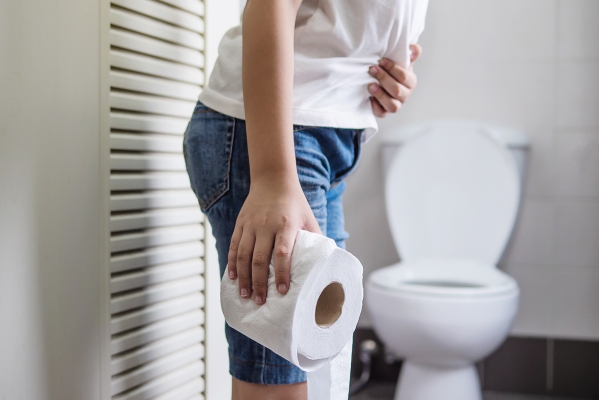Constipation, Straining, Stool impaction
Description : Constipation in itself is not a disease. It is rather a symptom which can be due to several other
Article Details :
What is constipation?
Constipation in itself is not a disease. It is rather a symptom which can be due to several other causes. Constipation is defined as bowel movements occurring 3 or fewer times per week associated with straining. It is one of the most common abdominal complaints in the United States. It is also a very common cause to be referred to gastrointestinal specialists. Constipation is said to be chronic if it persist for at least 12 weeks.
Despite being a condition that can occur occasionally in every individual, it can also be a symptom for a more serious underlying disease. It can also affect one’s daily function and activities.
In most defecation attempts, the stools are hard and lumpy with a sensation of incomplete defecation after the bowel movement. In some cases, manual manoeuvres may even be necessary to ease defecation.
If recurrent constipation is alternated with episodes of loose stools, irritable bowel syndrome may be the cause. When present in middle aged or elderly people, it may be a mass in the colon which is causing obstruction.
The first step in the management of constipation is to look for the underlying cause. The treatment will depend on the cause and includes dietary changes and exercise. In some specific cases, surgery may be warranted.
Causes of constipation
The causes of constipation may be classified into 2 groups namely primary and secondary constipation.
Primary constipation
Primary constipation can further be subdivided into 3 categories:
- Normal-Transit constipation: This is the most common subtype of primary constipation. In this category, the stools pass through the large intestine at a normal rate, however, people find it difficult to defecate. Normally, on physical examination, no abnormalities are observed.
- Slow-Transit constipation: This category is more common among women. In this type of constipation, the stools do not move at a normal rate and get impacted at the terminal end of the large intestine. This can also cause distension of the abdomen.
- Pelvic floor dysfunction: The pelvic floor is composed of muscles that help in easing defecation. If these muscles are not functioning properly, the affected individuals may find it difficult to pass stools and need to strain more and for longer periods. The anal sphincter, which is a group of muscles found at the end of the rectum, is responsible to control the release of stools from the rectum to the outside of the body. Dysfunction of the anal sphincter can also lead to constipation.
Secondary constipation
This category includes all of the other causes that can lead to constipation such as:
- Inadequate water intake
- Decreased levels of physical activity
- Anal fissures
- Haemorrhoids
- Narrowing of the large intestine
- Tumours obstructing the large intestine
- Twisting of the large intestine
- Electrolyte imbalances such as increased calcium or decreased potassium in the blood
- Hyper-functioning parathyroid gland (hyperparathyroidism)
- Diabetes mellitus
- Neurologic problems such as stroke, Parkinson’s disease, lesion to the spinal cord, cerebrovascular accidents or head injury
- Hirschsprung disease, in which the intestines cannot move properly
- Side effect of certain medications
- Lead poisoning
- Psychological problems such as depression, anxiety and eating disorders
Risk factors
The following factors can increase your risk of having constipation:
- Old age
- Female gender
- Low fibre diet
- Sedentary lifestyle
- Dehydration
- Having a psychological disorder
- Taking medications whose side effect is constipation
Signs and symptoms
Some people with constipation can have no symptoms at all while other can have some bothersome signs and symptoms. The clinical presentation depends on the underlying cause. These may include:
- Bloating
- Distention of the abdomen
- Bleeding from the rectum
- Low back ache
- Sensation of incomplete defecation
- Straining on defecation
- Feeling the need to have a bowel movement even if you just had one
- Need to use fingers to extract stools
If the following signs and symptoms are present, it may be due to more serious problems:
- Bleeding from the rectum
- Abdominal pain
- No passing of flatus
- Vomiting
- Unintentional weight loss

Making a diagnosis
To help in knowing what is causing your constipation, it is important for you to clearly explain to your doctor the course of the condition and how was your normal pattern or defecation. Any diet changes should also be mentioned as it can aid in making the diagnosis. If you are taking any medication, make sure to mention it. After taking a good history from you, your doctor will then examine you. In certain cases, a digital rectal examination may also be performed whereby your Read more




